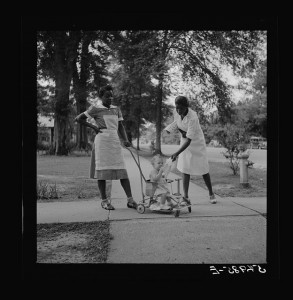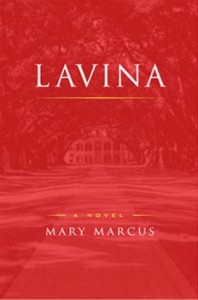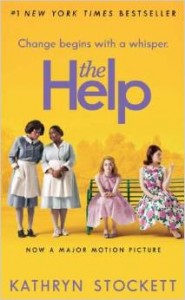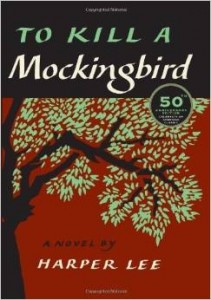
This is a picture from The Library of Congress, dated 1940. Housekeepers in Port Gibson, Mississippi, only three hours from my hometown.
There is a lot I like about The Help. I like the tenderness between the housekeepers and the children. I certainly felt that with Aline, who inspired me to write Lavina. The book brought to light some of the unfairness that ran through southern households like the rotten roots of a decaying tree, and got people talking about it, remembering it.
But in my opinion, humble as it may be, Kathryn Stockett, author of The Help, got a few things wrong in her bestselling book.
- To Kill A Mockingbird was banned from Louisiana classrooms as recently as 2013. The Help was set in the 1960’s and no bookstore in my hometown of Shreveport, Louisiana, would have carried the book written by the main character. Skeeter’s book would have been banned from the bookstores, libraries and definitely the schools. The premise of The Help doesn’t address the systemic racism that southern towns operated on, even though it nails small town life.
- The pie. The infamous pie makes Mini seem like a savage. I grew up in the kitchen, and no one I ever knew would have done anything like this. Never. Not every racially diverse character needs to be a hero, but this act was so sub-human it actually deepens the stereotypes that The Help ostensibly aimed to diminish.
- Skeeter—a semi-virtuous wellborn white girl—saving the day for the domestics. Nobody saved the day for any African American woman I ever met. My mother paid our housekeeper Aline maybe ten dollars more a week than any of the other women got. But Aline lived below the poverty level and her family no doubt subsisted from the scraps we left behind.
Like Harper Lee’s Atticus Finch from a generation before, standing for justice, and so many other stories of the South, the good white person leading the dark people out of misery is a conceit. It’s more emotionally loaded than a conceit. I was always interested to read the stories of the heroes who saved themselves. Or the stories of the heroes who never got saved.
The Help is about girls: the mean girls and the good girls. But girls weren’t necessarily the perps in the Jim Crow South. They were disenfranchised themselves. Fathers, Brothers, Uncles: they were the perps. We never had anyone like Atticus Finch in my hometown, that I can recall, though I always wanted him as my father. Or was it Gregory Peck I wanted as my father? It’s hard to tell.
 I don’t know of any Freedom Riders from Shreveport, Louisiana—though I think there probably were a few. One of the reasons why I wrote Lavina is because I wanted to imagine what would have happened if someone like Aline got herself involved in such a momentous event. I wanted to imagine Aline as her own hero.
I don’t know of any Freedom Riders from Shreveport, Louisiana—though I think there probably were a few. One of the reasons why I wrote Lavina is because I wanted to imagine what would have happened if someone like Aline got herself involved in such a momentous event. I wanted to imagine Aline as her own hero.
I was lucky enough to talk to a real Freedom Rider when I was writing Lavina. He was a rabbi, and he told me how scared he was being in jail in Florida and what it was like sitting down at the Woolworth’s counter. He had a big rich rabbinical voice and he was waving his arms as he gave me a very dramatic account of that afternoon at the counter and the night he spent in jail.
I didn’t think to ask him whether the African Americans with whom he sat down got bailed out of jail, as he did. I wish I had.
You can read an excerpt here of Lavina, if you’d like to, or order it from your local bookstore or on Amazon if you’d like to read the whole thing.
And these classics of southern fiction are, of course, available at your local bookstore or on Amazon. Links below.



